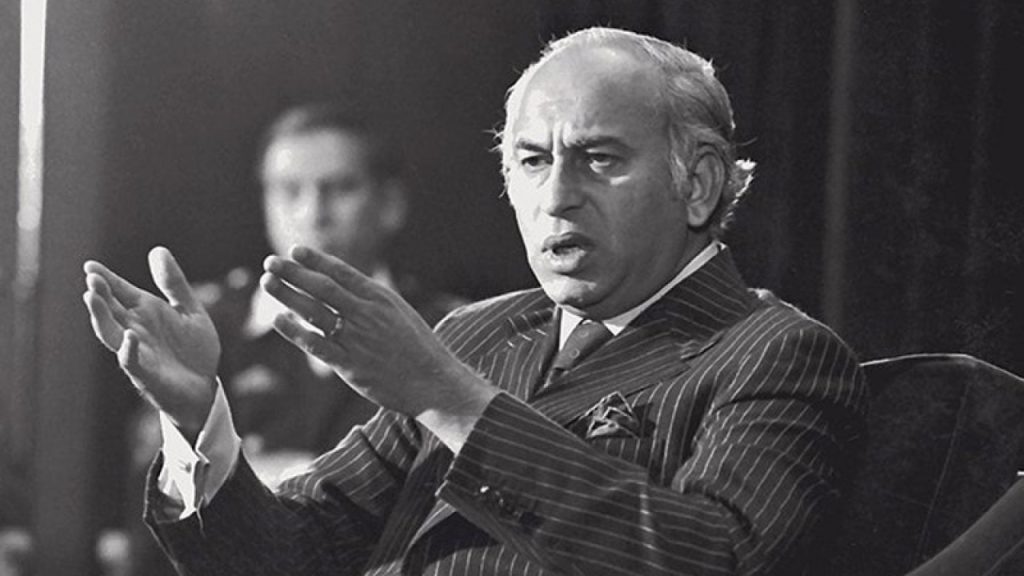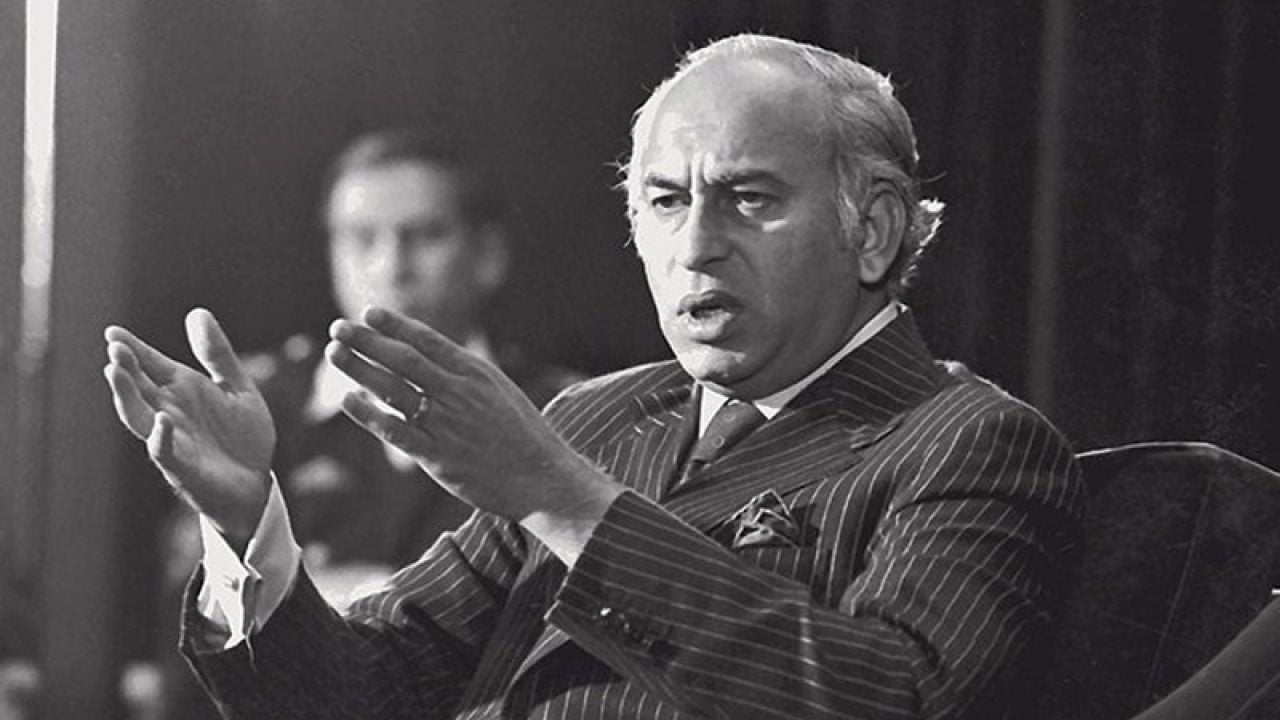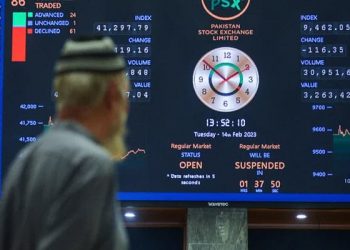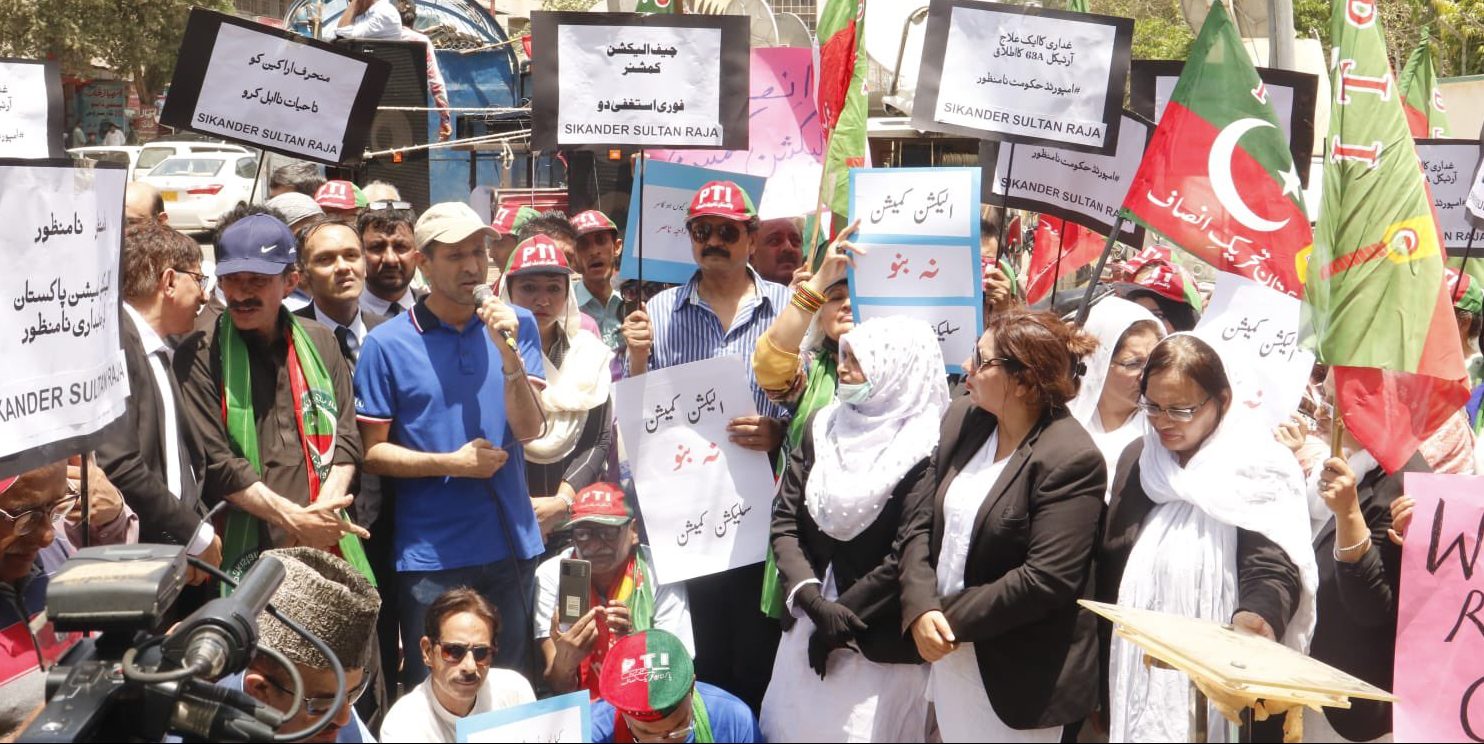In a historic session on Wednesday, the Supreme Court of Pakistan, under the leadership of Chief Justice Qazi Faez Isa, brought to light significant concerns regarding the trial of former Prime Minister Zulfikar Ali Bhutto, which led to his execution in 1979. The nine-judge bench, comprising justices with diverse legal insights, delivered a unanimous opinion that has the potential to reshape perceptions of justice and fairness in the country’s legal system.
Brittle-eyed Pakistan Peoples Party (PPP) Chairman Bilawal Bhutto-Zardari hailed the Supreme Court’s (SC) ruling on the trial, verdict, and execution of the late Prime Minister Zulfikar Ali Bhutto, calling the outcome “historic” on Wednesday.
“Zulfikar’s lack of a fair trial has been acknowledged by the court. We hope that this nation, the court, and democracy will have a successful future in the wake of today’s historical developments, when history is being corrected,” an emotional Bilawal told the media outside the Supreme Court in Islamabad.
More than 44 years after judicial murder and more than 12 years after presidential reference was filed; today a unanimous decision announce by CJP Isa. Shaheed Zulfikar Ali Bhutto did not get a fair trial. The pursuit of justice was a labour of love by President Asif Ali Zardari… https://t.co/rTNgLWeood
— BilawalBhuttoZardari (@BBhuttoZardari) March 6, 2024
THE PRESIDENTIAL REFERENCE EXPLAINED
Initiated by former President Asif Ali Zardari in April 2011, the reference sought the Supreme Court’s advisory opinion on revisiting Bhutto’s death sentence—a decision many believed was marred by political influences under the military regime of General Ziaul Haq. Chief Justice Isa’s remarks pointed out that the trial and subsequent appeal failed to adhere to the fundamental rights of a fair trial and due process as guaranteed by the Constitution.
Led by Chief Justice Isa, the bench included Justice Sardar Tariq Masood, Justice Syed Mansoor Ali Shah, among others, highlighting the gravity and complexity of the matter at hand. For the first time, the proceedings were made accessible to the public via live broadcast on the Supreme Court’s website and YouTube channel, emphasizing transparency and public engagement in this significant legal review.
THE SC’S UNANIMOUS STANCE
In delivering its opinion, the Supreme Court underscored the absence of a fair trial in Bhutto’s case, acknowledging the impact of fear or favor in judicial decisions throughout history. This reflection calls for a commitment to justice, served with integrity, and the courage to recognize and correct past errors.
Announcing the unanimous opinion today, CJP Qazi Faez Isa said, “The proceedings of the trial by the Lahore High Court and of the appeal by the Supreme Court of Pakistan do not meet the requirements of the fundamental right to a fair trial and due process enshrined in Articles 4 and 9 of the Constitution, and later guaranteed as a separate and fundamental right under Article 10A of the Constitution.”
The court carefully navigated through the presidential reference, addressing various legal queries but ultimately stating that the Constitution and law do not provide a mechanism to overturn the judgment against Bhutto. This candid admission sets a precedent for future legal interpretations and the integrity of the judiciary.
A MOMENT OF HISTORIC SIGNIFICANCE
As the decision was announced, emotions ran high among Bhutto’s descendants and supporters, with Bilawal Bhutto-Zardari, his grandson, marking the moment as historic and a step towards rectifying a grave injustice. This sentiment was echoed by Prime Minister Shehbaz Sharif, who viewed the Supreme Court’s acknowledgment as a foundation for national unity and progress by correcting historical wrongs.
This significant review by the Supreme Court of Pakistan brings a long-standing legal and political saga into the limelight, offering a chance for the nation to reflect, learn, and aspire towards a more just and accountable future.



















